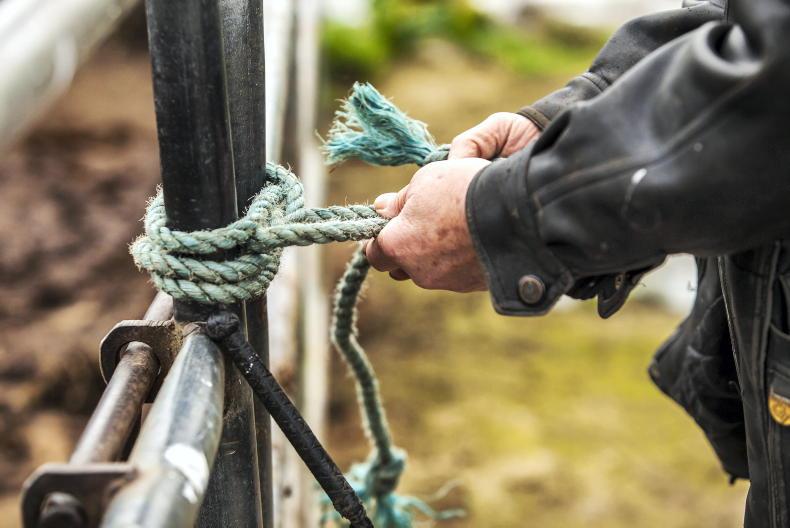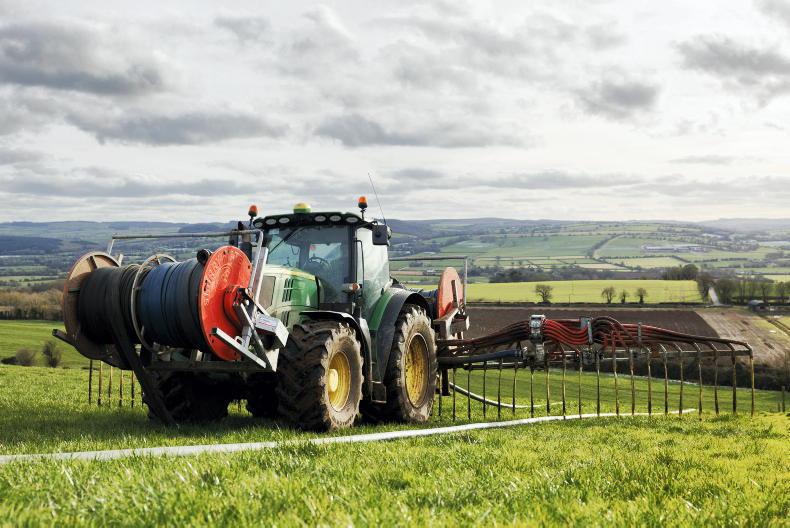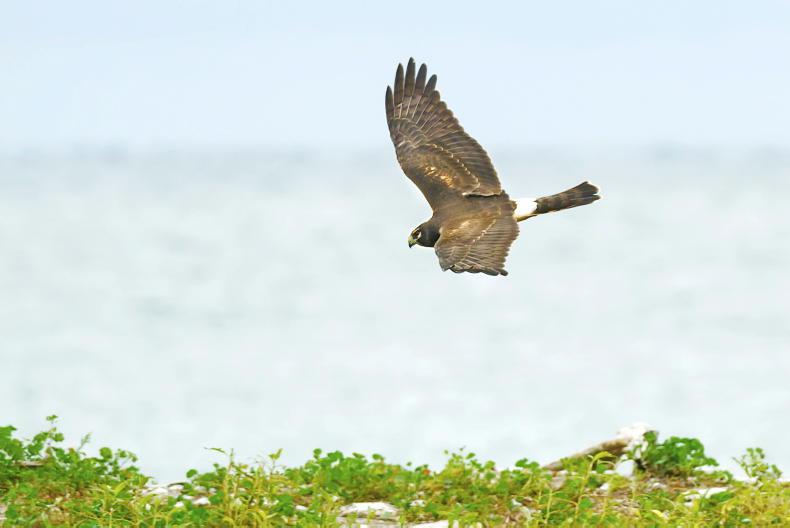“I have recently received a letter from the Department to advise me that I have suffered a penalty to my Basic Payment Scheme payment last year. I am inspected every year and no matter how much time I put in to prepare for the inspection, they always seem to catch me on something. I don’t get much in payments and I’m wondering should I just sell my entitlements and not bother with applying for the payment anymore?”
Profitability reliant on direct
payments
With the growing level of bureaucracy in complying with EU Schemes, uncertainty surrounding the future of CAP and farmers having to compete on the world market, I have met several farmers of late questioning the benefit of applying for the various schemes.
It should be noted that whether you apply for payments or not, you are still obliged to respect all the necessary legislation that pertains to your farming enterprise. The answer to the question will vary depending on the farming activity you are involved in, the number of schemes involved and the level of payment.
For example, a fairly intensive dairy farm or a pig unit with a small Basic Payment Scheme (BPS) payment relative to their income may find the return is not worth the investment in time and additional measures required to claim their BPS entitlements.
However, contrast this with a small holding in a disadvantaged area claiming BPS, GLAS, BDGP and a Sheep Welfare Scheme payment and this income stream is invaluable.
The Teagasc National Farm Survey Preliminary Results for 2020 published earlier this year showed that farm income continues to be highly reliant on direct payments. In 2020 the average total payment was €17,931 and this accounted for 70% of income on average.
The answer to the query may be best answered by giving an example.
Alleged removal of hedge
during the bird nesting season
If a landowner is alleged to have cut/removed hedges during the bird nesting season (1 March to 31 August), he/she is open to a criminal prosecution and also a fine to the BPS payment as follows:
A summons would be issued for an offence under Section 40(1) of the Wildlife Act 1976-2000. A 20% penalty (intent sanction) imposed on BPS penalty for breach of GAEC 7 relating to landscape features and SMR 2 relating to wild birds. Criminal prosecution
A criminal prosecution can be brought whether payments are being claimed or not but it must be brought within one year after the date of the offence. Depending on the severity of the offence it may be tried summarily in the District Court which carries a maximum penalty of €5,000 and/or six months in prison.
More serious offences are tried on indictment by a judge and jury in the Circuit Court which carries a maximum penalty of a fine not exceeding €100,000 or two years in prison or both.
If the landowner admits under caution having directed a contractor to carry out the clearance works, they would normally enter a guilty plea which would lessen the penalty and costs. The penalties imposed in the District Court can vary but most often do not exceed a monetary penalty of €1,000 per offence together with an order to discharge the States prosecution costs which again normally would not exceed €1,000 if uncontested. There would also be the landowners own legal costs.
Penalty to Department of Agriculture, Food and Marine payments
In this case, generally the National Parks and Wildlife Service (NPWS) would investigate the alleged offence and cross report it to DAFM who then issue a penalty under the BPS. This penalty can range from 3%-20% and can be tripled if there was a previous breach of the same SMR within the last three years.
If the landowner was involved in other schemes such as GLAS, they would also suffer a penalty to their GLAS payment. The Department would also generally issue a replanting notice requiring a hedgerow of at least equal length to that of the landscape feature removed to be planted within one year.
The cost associated with this replanting obligation together with the cost of the BPS penalty can generally be pleaded in mitigation in the criminal prosecution ie that the fine in the court case should be reduced as the landowner has already been adequately penalised.
The Department would normally issue a letter to the landowner notifying them of the penalty and deducting it from that years BPS payment if it has not already issued.
Then it is for the landowner to appeal that penalty under the internal Department review system and if unsuccessful through the Agriculture Appeals Office which can take several months before a final determination issues.
If the landowner engages a solicitor and/or agricultural adviser to assist with that appeal, the costs are not recoverable even if the landowner is successful on appeal.
It is evident that, in this example, a much lesser sanction applies if there is no BPS payment to penalise, the State is limited to bringing a prosecution.
So while a farmer may be required to comply with certain minimum standards regardless of whether they claim the BPS payment or not, it may be harder to penalise a farmer who is not claiming the BPS payment.
That said, before making any decision on not applying for payments or schemes, a critical look inside the farm gate could be a beneficial first step. It may be worth getting your Teagasc adviser/agricultural consultant to review your farming set up with you to see where you might be falling down to minimise any future penalties.
It’s like getting your car serviced and checked over before you go for an NCT, it minimises the risk of failing the test. Money is money at the end of the day.
Disclaimer: The information in this article is intended as a general guide only. While every care is taken to ensure accuracy of information contained in this article, Aisling Meehan, Agricultural Solicitors does not accept responsibility for errors or omissions howsoever arising. Email aisling@agrisolicitors.ie
Read more
Legal: trouble ahead with Fair Deal changes
Legal Matters: who is responsible for an overgrown hedge?
“I have recently received a letter from the Department to advise me that I have suffered a penalty to my Basic Payment Scheme payment last year. I am inspected every year and no matter how much time I put in to prepare for the inspection, they always seem to catch me on something. I don’t get much in payments and I’m wondering should I just sell my entitlements and not bother with applying for the payment anymore?”
Profitability reliant on direct
payments
With the growing level of bureaucracy in complying with EU Schemes, uncertainty surrounding the future of CAP and farmers having to compete on the world market, I have met several farmers of late questioning the benefit of applying for the various schemes.
It should be noted that whether you apply for payments or not, you are still obliged to respect all the necessary legislation that pertains to your farming enterprise. The answer to the question will vary depending on the farming activity you are involved in, the number of schemes involved and the level of payment.
For example, a fairly intensive dairy farm or a pig unit with a small Basic Payment Scheme (BPS) payment relative to their income may find the return is not worth the investment in time and additional measures required to claim their BPS entitlements.
However, contrast this with a small holding in a disadvantaged area claiming BPS, GLAS, BDGP and a Sheep Welfare Scheme payment and this income stream is invaluable.
The Teagasc National Farm Survey Preliminary Results for 2020 published earlier this year showed that farm income continues to be highly reliant on direct payments. In 2020 the average total payment was €17,931 and this accounted for 70% of income on average.
The answer to the query may be best answered by giving an example.
Alleged removal of hedge
during the bird nesting season
If a landowner is alleged to have cut/removed hedges during the bird nesting season (1 March to 31 August), he/she is open to a criminal prosecution and also a fine to the BPS payment as follows:
A summons would be issued for an offence under Section 40(1) of the Wildlife Act 1976-2000. A 20% penalty (intent sanction) imposed on BPS penalty for breach of GAEC 7 relating to landscape features and SMR 2 relating to wild birds. Criminal prosecution
A criminal prosecution can be brought whether payments are being claimed or not but it must be brought within one year after the date of the offence. Depending on the severity of the offence it may be tried summarily in the District Court which carries a maximum penalty of €5,000 and/or six months in prison.
More serious offences are tried on indictment by a judge and jury in the Circuit Court which carries a maximum penalty of a fine not exceeding €100,000 or two years in prison or both.
If the landowner admits under caution having directed a contractor to carry out the clearance works, they would normally enter a guilty plea which would lessen the penalty and costs. The penalties imposed in the District Court can vary but most often do not exceed a monetary penalty of €1,000 per offence together with an order to discharge the States prosecution costs which again normally would not exceed €1,000 if uncontested. There would also be the landowners own legal costs.
Penalty to Department of Agriculture, Food and Marine payments
In this case, generally the National Parks and Wildlife Service (NPWS) would investigate the alleged offence and cross report it to DAFM who then issue a penalty under the BPS. This penalty can range from 3%-20% and can be tripled if there was a previous breach of the same SMR within the last three years.
If the landowner was involved in other schemes such as GLAS, they would also suffer a penalty to their GLAS payment. The Department would also generally issue a replanting notice requiring a hedgerow of at least equal length to that of the landscape feature removed to be planted within one year.
The cost associated with this replanting obligation together with the cost of the BPS penalty can generally be pleaded in mitigation in the criminal prosecution ie that the fine in the court case should be reduced as the landowner has already been adequately penalised.
The Department would normally issue a letter to the landowner notifying them of the penalty and deducting it from that years BPS payment if it has not already issued.
Then it is for the landowner to appeal that penalty under the internal Department review system and if unsuccessful through the Agriculture Appeals Office which can take several months before a final determination issues.
If the landowner engages a solicitor and/or agricultural adviser to assist with that appeal, the costs are not recoverable even if the landowner is successful on appeal.
It is evident that, in this example, a much lesser sanction applies if there is no BPS payment to penalise, the State is limited to bringing a prosecution.
So while a farmer may be required to comply with certain minimum standards regardless of whether they claim the BPS payment or not, it may be harder to penalise a farmer who is not claiming the BPS payment.
That said, before making any decision on not applying for payments or schemes, a critical look inside the farm gate could be a beneficial first step. It may be worth getting your Teagasc adviser/agricultural consultant to review your farming set up with you to see where you might be falling down to minimise any future penalties.
It’s like getting your car serviced and checked over before you go for an NCT, it minimises the risk of failing the test. Money is money at the end of the day.
Disclaimer: The information in this article is intended as a general guide only. While every care is taken to ensure accuracy of information contained in this article, Aisling Meehan, Agricultural Solicitors does not accept responsibility for errors or omissions howsoever arising. Email aisling@agrisolicitors.ie
Read more
Legal: trouble ahead with Fair Deal changes
Legal Matters: who is responsible for an overgrown hedge?










SHARING OPTIONS